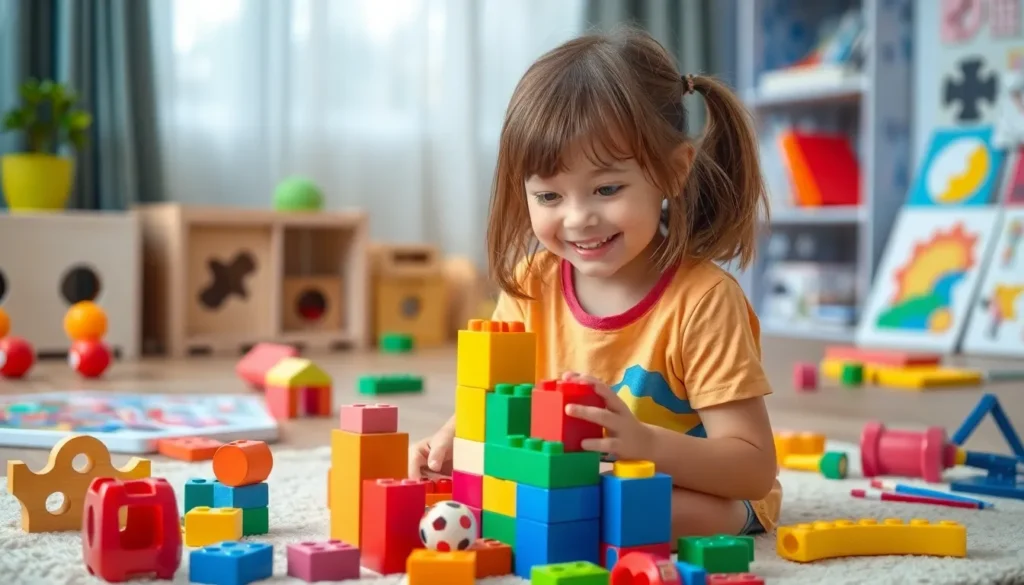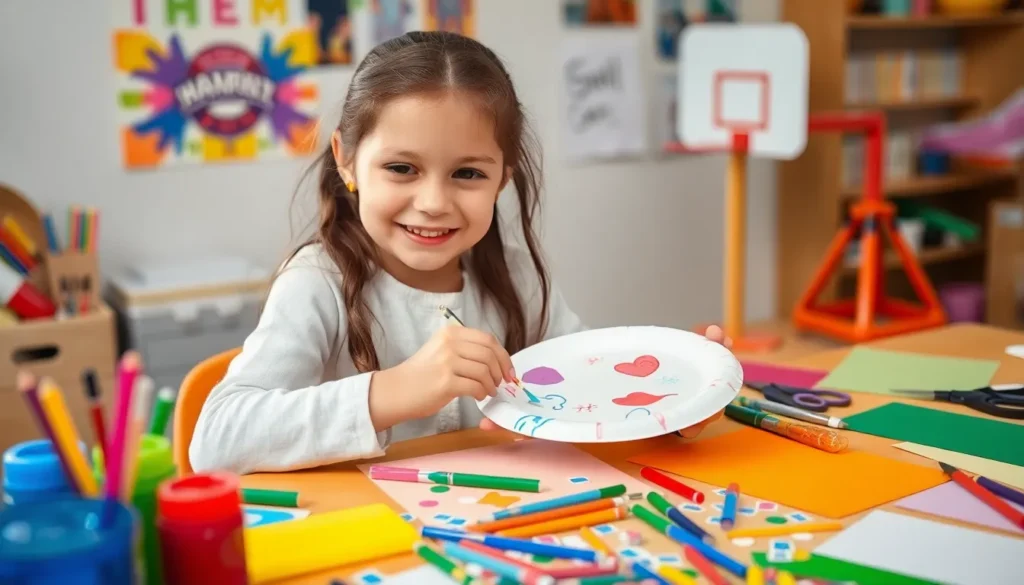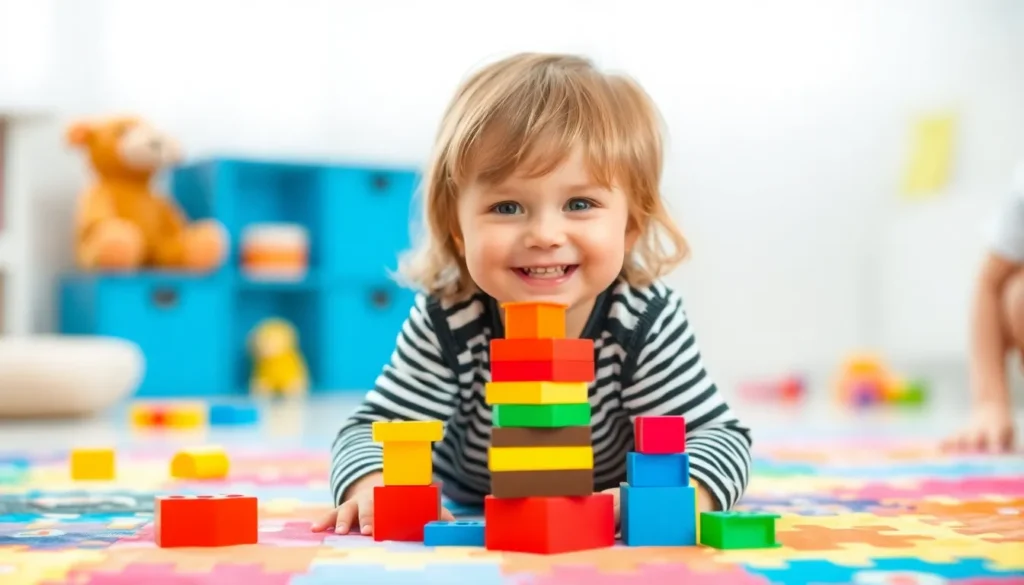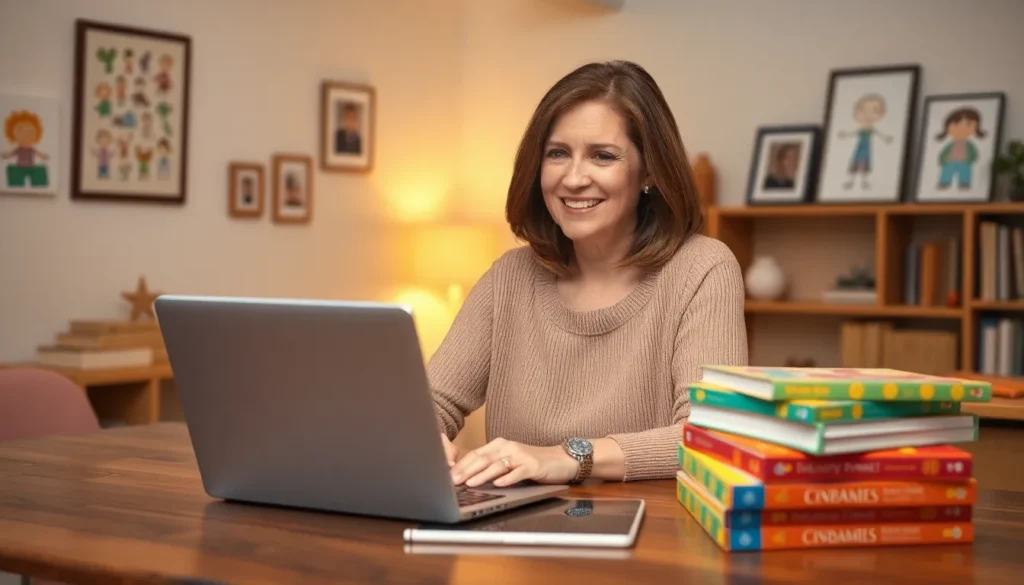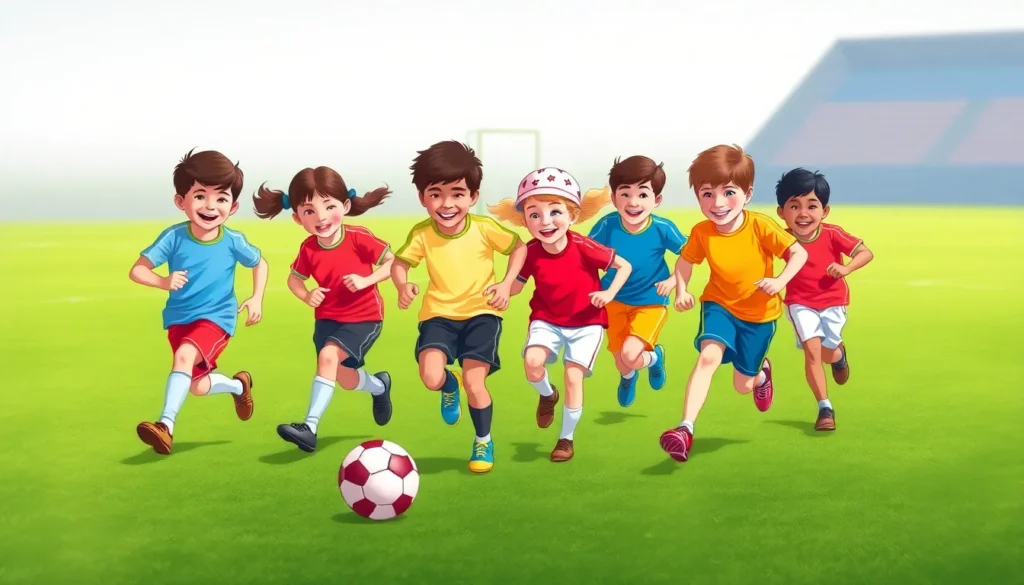Navigating the wild world of co-parenting can feel like trying to juggle flaming torches while riding a unicycle. When the court steps in and orders co-parenting classes, it might seem like a punishment, but it’s actually a golden opportunity in disguise. These classes aren’t just about learning to share parenting duties—they’re about mastering the art of teamwork, even when your ex’s idea of “teamwork” involves a lot of eye-rolling.
Table of Contents
ToggleUnderstanding Court Ordered Co Parenting Classes
Court-ordered co-parenting classes serve as a structured approach to help parents navigate the complexities of shared parenting. They emphasize communication and cooperation despite differing viewpoints.
What Are Court Ordered Co Parenting Classes?
Court-ordered co-parenting classes focus on teaching parents vital skills for effective partnership in raising children. Participants learn conflict resolution techniques, communication strategies and child development concepts. Classes often include discussions on the emotional impact of separation on children. Parents must engage in interactive exercises that promote teamwork and understanding. Most jurisdictions require completion of these classes following a divorce or custody dispute.
Why Are They Required?
Court mandating co-parenting classes aims to protect children’s best interests. By enhancing parental collaboration, the classes help minimize conflict that adversely affects children’s emotional well-being. Courts recognize that improved co-parenting leads to healthier outcomes for children. Training equips parents with strategies to manage disputes constructively and communicate more effectively. Successful completion may influence custody arrangements and future hearings, promoting a focus on children’s needs above all.
Benefits of Court Ordered Co Parenting Classes
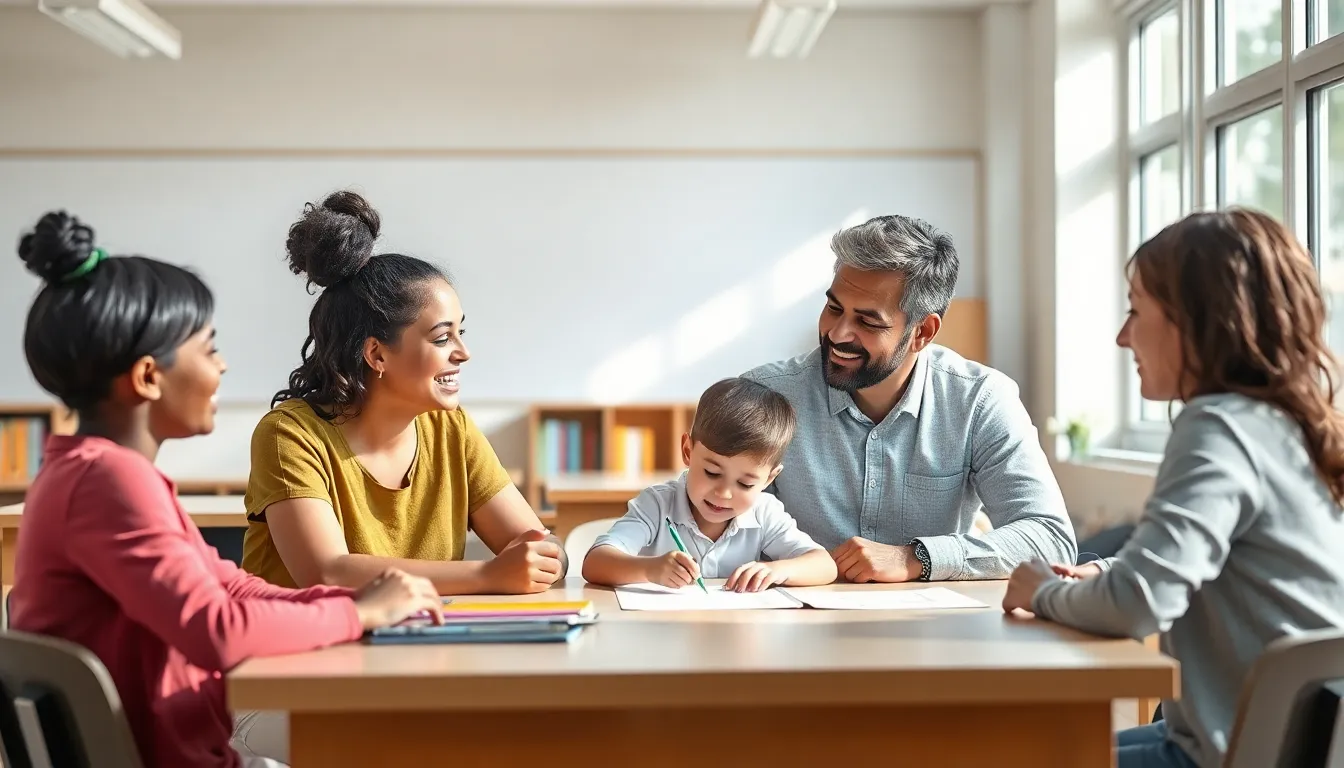
Court ordered co-parenting classes provide essential tools for parents navigating shared responsibilities. Participants gain insights that lead to improved outcomes for themselves and their children.
Improved Communication Skills
Communication serves as a cornerstone in effective co-parenting. Classes teach participants techniques to express feelings, listen actively, and clarify misunderstandings. Learning to articulate thoughts fosters better dialogue between parents. Enhanced communication reduces conflicts and promotes a more harmonious environment for children. Parents practice real-life scenarios to strengthen their skills. These experiences prepare individuals to approach difficult conversations with confidence. Ultimately, improved communication equips parents with the ability to tackle challenges collaboratively.
Enhanced Co Parenting Relationships
Strengthening relationships is a key benefit of these classes. Participants develop trust as they learn to share responsibilities and make joint decisions. These structured classes promote empathy among parents, encouraging them to understand each other’s perspectives. As parents work through challenges together, they build a sense of teamwork. Self-awareness increases, allowing individuals to recognize their own triggers and responses. Positive interactions during the classes help cultivate a respectful co-parenting dynamic. In turn, this enhances emotional stability for children involved, creating a supportive environment.
What to Expect in Co Parenting Classes
Co-parenting classes provide structured guidance designed to enhance parenting collaboration. Participants engage in various topics relevant to their unique situations and parenting styles.
Course Structure and Content
Classes typically encompass several key areas. Conflict resolution techniques serve as a primary focus, enabling parents to address disagreements constructively. Communication strategies, such as active listening and expressing emotions effectively, are also covered. Child development concepts provide insights into children’s emotional needs, helping parents understand their roles more clearly. Each session includes discussions, role-playing exercises, and group activities to reinforce learning and promote interaction.
Duration and Frequency of Classes
Duration varies based on program requirements. Most classes last between 4 to 8 hours, often split into multiple sessions. Sessions can occur weekly or bi-weekly, allowing parents to absorb content while applying skills in real-time. Some programs may offer online options, providing additional flexibility for participants. Each program ensures that families receive comprehensive support throughout the course.
Finding the Right Co Parenting Class
Finding the right co-parenting class involves exploring local and online options tailored to individual needs.
Local Resources and Organizations
Local resources can provide valuable support for co-parents seeking classes. Community centers and family service organizations often host co-parenting workshops. Courts may recommend specific classes based on jurisdiction. Local universities sometimes offer courses focusing on parenting skills. Parents might check with family therapists or counselors to find reputable programs. Experienced facilitators often lead these sessions, ensuring families receive expert guidance. Referrals from family or friends who have attended classes can also help identify suitable programs.
Online Options
Online options offer flexibility and convenience for co-parents. Various programs provide virtual classes that parents can attend from home. Many online courses feature interactive elements, including videos and discussion forums. Parents can access diverse content that fits their schedules, often at their own pace. Some platforms also offer live sessions with instructors for real-time feedback. An advantage of online courses includes a broader selection of topics to address unique situations. Various websites also provide resources such as articles and forums for ongoing support.
Court-ordered co-parenting classes offer parents a chance to enhance their collaboration skills while prioritizing their children’s well-being. By focusing on effective communication and conflict resolution, these classes pave the way for healthier co-parenting relationships. Parents who engage in this structured learning environment often find themselves better equipped to manage their shared responsibilities.
As they gain insights into child development and emotional impacts of separation, they foster a supportive atmosphere for their children. The skills learned in these classes not only improve interactions between parents but also contribute to more stable and nurturing environments for kids. Embracing this opportunity can lead to positive changes that benefit the entire family dynamic.


